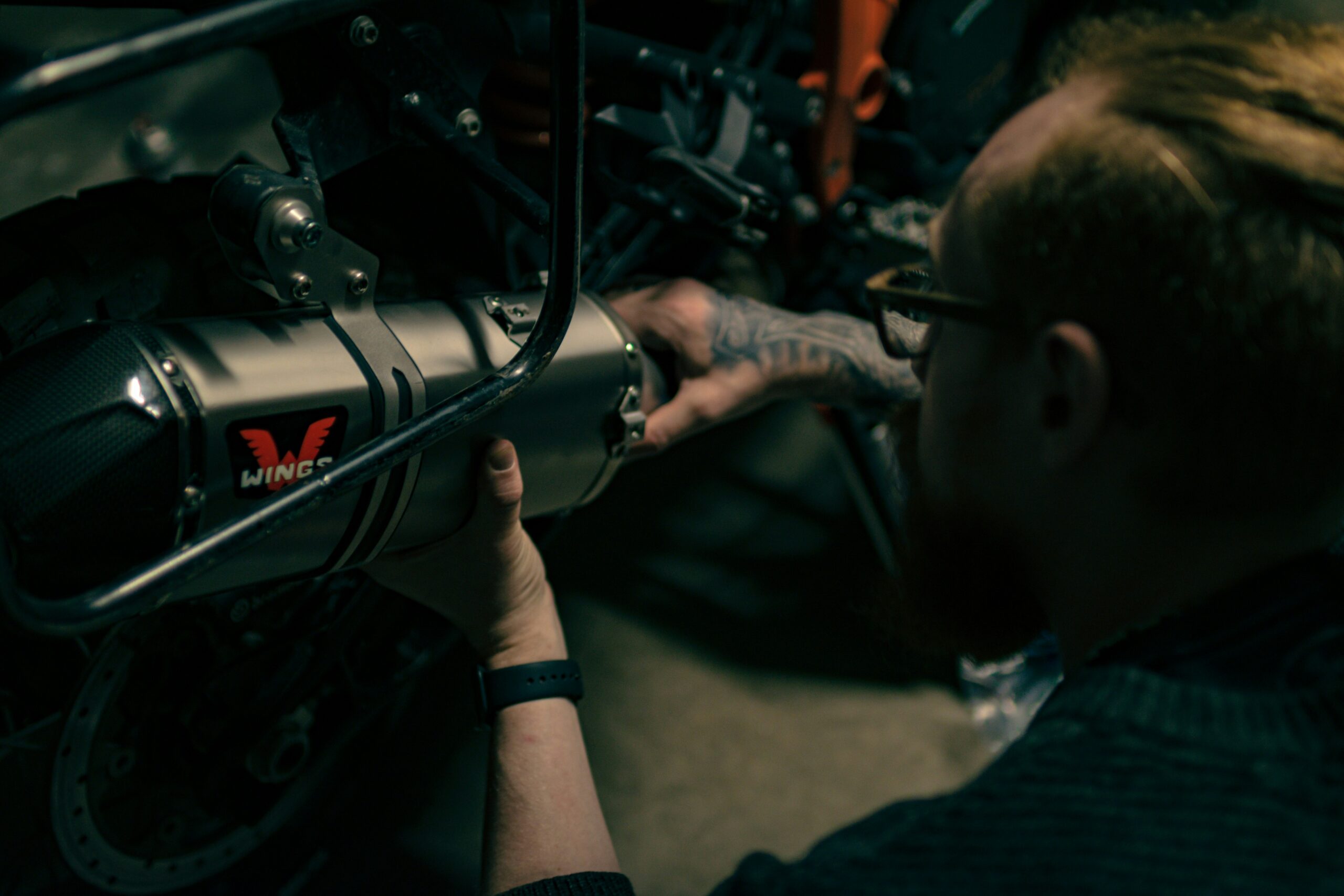A humming noise while you accelerate could be a sign of a bad wheel bearing, uneven tires, or an alternator belt issue. Some of these problems can be dangerous, so it’s important to bring your car to a shop ASAP.
Bizarre noises are never a good sign when driving. Driving with a humming sound is not only annoying, but it’s also dangerous! Unfortunately, humming can be difficult to diagnose. If you hear clicking when you turn, that could be a key indicator that your vehicle has a problem with a wheel bearing.
Keep reading to learn about what might be causing a lot of noise, including bad wheel bearings, tires, and alternator belt. Ultimately, a trained mechanic can help you resolve the issue. But for now, here’s a quick guide from Jerry, the trusted super app for finding cheap car insurance.
Bad wheel bearing
The wheel bearing performs two critical roles: It allows the assembly to rotate comfortably, and it keeps the wheel’s axis properly straight. There are a few telltale indicators that your wheel bearing is failing. A failed wheel bearing is a common cause of the grinding noise or humming.
How to know if you have a bad wheel bearing
If the wheel bearing or a ball joint is damaged, you may notice some key symptoms:
- Knocking or clicking noises when cornering
- Groaning noises when driving straight
- Vibrations in the steering wheel
- Increasing humming noises as acceleration increases
The humming noise results from increased strain due to a faulty wheel bearing. As you accelerate or navigate a winding road, the radial forces upon the bad bearing will increase—and the humming noise will get louder.
What causes this type of damage? High impacts (like potholes) can contribute to premature wheel bearing damage. Even a poorly inflated rear wheel could be problematic. If your wheels are misaligned or your tires are unbalanced, this can damage the bearings and the rims.
Note that all bearings will fail eventually—the timing of failure depends on your driving conditions.
With failed wheel bearings, the best solution is to get new tires on the same axle.
What happens when a wheel bearing goes out?
Let’s start with the worst-case scenario.
It is possible that a failed wheel bearing could cause a wheel to stop while driving or even fall off. Wheel bearings keep the wheel and hub assembly on their proper axis. When a wheel bearing goes out, the wheel can start to wobble. At high speed, this could cause a lot of damage to brake pads, suspension components, and other key parts of your car.
Before this happens, your vehicle will definitely suffer significant damage. You could lose the ability to control the vehicle due to unpredictable braking. A bad wheel bearing will cause the rotor to wiggle, forcing the piston back so that the driver experiences pedal travel.
In very extreme cases, the vehicle could even catch on fire due to the increased friction.
Uneven tire wear
Uneven tire wear may be caused by a worn wheel bearing, improper wheel alignment, or over- and under-inflation. Here’s a quick explanation of how uneven tire wear might be contributing to the loud humming noise in your car.
What causes uneven tire wear?
Uneven tire wear is usually the result of either unbalanced wheels, bad alignment, or underinflated tires.
If the wheels are improperly aligned—or if one tire is over or under-inflated—the tires will wear down at different rates. Eventually, this will lead to humming and groaning.
Uneven tire wear is even more likely with sub-par tires or steering parts, which will be more susceptible to wear. In these situations, the worn rubber begins to erode and the tire treads will fail.
Finally, off-road and all-terrain tires are more likely to contribute to uneven wear (and the humming noise).
Try the penny test if you want to check the tread on your own tires. Remember to check all four tires! If you find a problem, make sure to replace both wheels on the same axle if not all four. Otherwise, plan a tire rotation for every 5,000 miles.
Alternator belt problems
It’s unlikely but possible that your alternator belt is contributing to the humming noise.
What causes problems with the alternator belt?
If a belt is loose, it might result in a low-pitched humming noise. This would naturally increase as you accelerate to higher speeds. You might hear a squeaking or squealing if a belt is giving out.
Ask your mechanic to examine your serpentine belt and see if it needs a replacement. The fix is to simply tighten the belt, or replace it with one of higher quality.
Other causes
There are a few less common causes of humming noises:
- A leak in the exhaust system
- A worn-out power steering pump or universal joints
- The differential or the CV joint may need lubrication.
- A failing air conditioning system (although it usually rattles instead of hums).
All of these causes are far less common than a faulty wheel bearing, however. Ask your mechanic to conduct a full inspection to make sure you find the real source of the problem.
Find hassle-free car insurance
Owning a car can be a hassle. From filling up your tank with gas to strange noises, you simply cannot control everything the road throws your way!
Thankfully, car insurance can be hassle-free if you get help from the pros.
If you want to save money on car insurance, the Jerry app is a good place to start. A licensed broker, Jerry does all the hard work of finding cheap quotes from the top name-brand insurance companies and buying new car insurance. Jerry will even help you cancel your old policy.
FAQ
-
Does a wheel bearing noise get louder with speed?
-
Why is my car making a loud humming sound when I accelerate?

Bonnie Stinson is an insurance writer with 8+ years of experience as a content writer. They specialize in making complex topics like insurance and technology easy to understand. Bonnie has written over 1,300 articles to help people become confident car owners, from how to choose the right car and build a car insurance policy to dealing with stressful situations like car accidents and unexpected repairs. Before joining Jerry’s editorial team, Bonnie worked as a digital media strategist and user experience researcher, producing content for Furnishr, STACKEDD Magazine, InfinityCore Health, and the global non-profit Giraffe Heroes.
Melanie Reiff is an expert insurance writer and editor with over half a decade of experience in professional writing. Guided by a lifelong love of storytelling, it’s Melanie’s mission to help people problemsolve by means of creative and engaging content. Melanie specializes in analyzing the ways in which society, technology, and culture intersect, previously working with clients in travel, technology, and social impact to tell their stories.
As an editorial team lead at Jerry, Melanie has translated her prior experience into creating and editing insurance content that can help drivers and homeowners find the solutions they need and make informed moves.
Prior to joining Jerry’s editorial team, Melanie worked as a freelance content marketing strategist and was the full-time director of choir at Rampart High School Acadamy in Colorado Springs.






